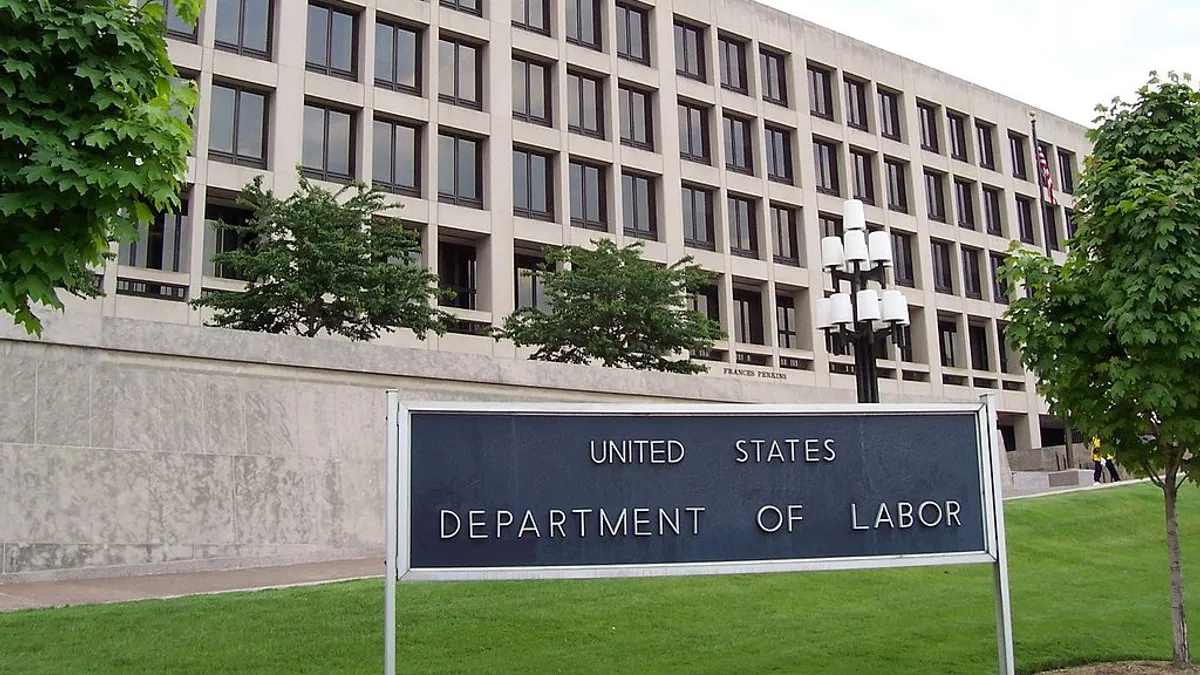Update: Feb. 25, 2021: The U.S. Department of Labor will finalize the rule's delay to April 30 to allow the Biden administration an "opportunity to review and consider the questions of law, policy, and fact raised by the rule."
Update: Feb. 3, 2021: The U.S. Department of Labor proposed to delay the rule's effective date to April 30, following the change in presidential administrations. It also opened a public comment period, inviting stakeholders to offer input through April 17, according to the announcement scheduled for publication in the Federal Register Feb. 5.
Update: Dec. 30, 2020: The U.S. Department of Labor published its regulations Dec. 30. They will take effect March 1, 2021.
Dive Brief:
- The U.S. Department of Labor (DOL) will soon expand employers' options for tip pools via regulation, the agency announced Dec. 22.
- Specifically, the impending rule allows employers that do not take a tip credit to implement tip pools that include employees who do not customarily and regularly receive tips — a reversal from recent years.
- Among other things, the rule also sets out related recordkeeping requirements, sets deadlines for tip pool payouts and implements legislation passed in 2018 that forbids managers and employers from taking gratuities meant for employees. The rule will take effect 60 days after it is published in the Federal Register.
Dive Insight:
The Trump Labor Department has long had an Obama-era Fair Labor Standards Act (FLSA) tip pooling regulation in its crosshairs. That 2011 rule prohibited tip pools that included non-tipped employees, even if employers also paid all workers involved minimum wage.
This latest rulemaking represents the agency's second attempt to undo those rules — a process that drew criticism, even from the agency's own Office of the Inspector General.
Critics also expressed concern that the initial proposal would allow managers and employers to retain gratuities. DOL said it didn't have the authority to regulate that issue, leading Congress to step in and prohibit such arrangements. With that issue resolved, the agency will now promulgate a rule that both implements that statutory provision and expands the definition of a valid tip pool.
This primary change will allow, for example, an arrangement that requires restaurant servers to share tips with back-of-house employees such as dishwashers, provided all employees are paid minimum wage, according to a question-and-answer document that accompanied the rule. This means employers may not put a credit for any tips received toward its minimum wage obligation, as is otherwise often permitted.
The agency hopes the change will "reduce wage disparities among all workers who contribute to customers' experience," DOL's wage and hour administrator, Cheryl Stanton, said in a statement.
Correction: An earlier version of this article included incorrect dates for DOL's delays. All delays occurred in 2021.














